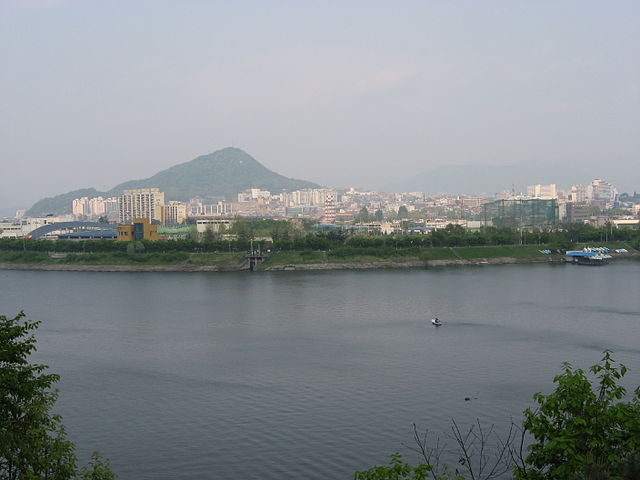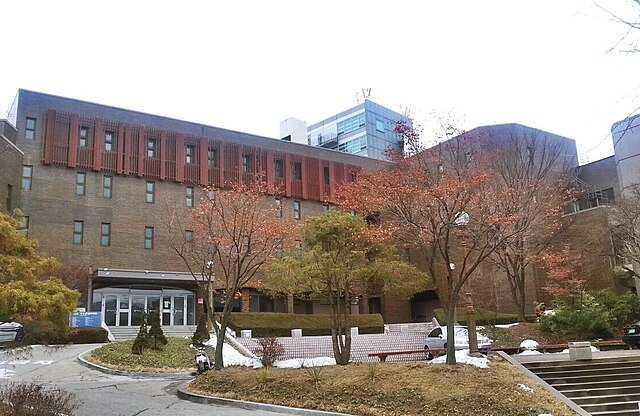On Monday, 13 January, the Faculty of Economics, Thammasat University will be hosting a seminar on Development Cooperation & Evaluation.
It is organized by the Center for International Development & Evaluation (CIDE) of the Seoul National University Graduate School of Public Administration (GSPA) and the TU Faculty of Economics.
The Thammasat University Library owns a number of books published by Seoul National University and Seoul National University Press.
Also in the TU Library collection are several books on development cooperation.
The event will be held in the fifth floor meeting room in the Faculty of Economics building, Tha Prachan campus. Students and other members of the TU community who wish to attend are invited to register online at this link.
Those who plan to attend should please register by Thursday, 9 January.

CIDE
According to its website, the background and objectives of CIDE are as follows:
The Center for International Development Evaluation (CIDE) is a research center specialized in international development sector evaluation launched at Seoul National University in March 2014. Our mission is to make contributions in improving the development programs of recipient countries and donor agencies by assessing aid effectiveness with rigorous evaluation methods in accord with international standard…
The vision of CIDE is to be ‘a practical research center dedicated to promoting effective aid to developing countries through credible evidence generation and recipient-oriented evaluation.’
Credible Evidence
The primary research goal of CIDE is to provide substantial assistance to improve aid strategy by generating and accumulating evaluation data that can be utilized by practitioners…
Among the distinguished visiting speakers at the January 13 event will be Professor Suk-Won Lee of GSPA, Executive Director of CIDE.
He will speak on Evaluation of International Development Projects and Proposals for Future Cooperation Between Korea and Thailand.
On the CIDE website, Professor Lee explains:
The Center for International Development Evaluation was launched at Seoul National University in March 2014. Our mission is to make contributions in improving the development programs of recipient countries and donor agencies by assessing aid effectiveness with rigorous evaluation methods.
Upon the year of 2010, Korea has evolved to fulfill its role as a responsible donor country both internationally – by acquiring membership in the OECD Development Assistance Committee (DAC), and domestically – with the successful implementation of “Framework Act on International Development Cooperation”…
Professor Lee earned a Ph.D. at the Robert F. Wagner Graduate School of Public Service, New York University, the United States of America. His primary area of research interest is about how to validly assess the effectiveness of public programs in both the domestic and international domains.
Among other subjects, he has researched official development assistance (ODA), welfare policy, and policies for old and disabled people.

Another guest speaker at the 13 January seminar will be Dr. Hyun-Sik Chang, former Managing Director of the Korea International Cooperation Agency (KOICA) and a professor at Kangwon National University.
Dr. Chang’s area of expertise is in international development cooperation among OECD member nations and China. On 13 January, he will speak about Sustainable Development Goals (SDGs) and Korea’s Development Experience.
According to the KOICA website, the organization works in the fields of
- Education
Acknowledging educational challenges, such as the learning crisis, gender discrimination and the skills gap issue in the developing countries, KOICA has set comprehensive targets that aim to cover quality and inclusive education initiatives, while also focusing on gender equity and the development of relevant skills.
- Health
Health is a fundamental human right for all, and it is also one of essential factors for the socioeconomic development of developing countries. KOICA has established the Health Mid-TermStrategy (2016-2020) and is striving to provide quality health care services and to ensure universal health for the residents in beneficiary countries.
- Governance
KOICA designated ‘Governance’ as one of its priority areas and provided assistance to strengthen administrative capacity in developing countries. Based on Korea’s experience of rapid growth, KOICA strives to improve the administrative capacity for sustainable growth and economic development, and to establish social & economic systems.
- Agriculture and Rural Development
The socio-economic instability and decline of agro-fishery products derived from climate change make difficulties in securing enough food and money for livelihood in the rural regions of developing countries. KOICA invests in agricultural and rural development as well as the conservation of natural resources and the ecosystem against climate change through the Agriculture & Rural Development Mid-Term Strategy (2016-2020).
- Water
Korea International Cooperation Agency (KOICA) has been continuously extending ODA (Official Development Assistance) for water in various sectors, including health, rural development, energy, and climate change response. In particular, in the water sector, linkages with other issues such as gender, governance, and ICT have become more important. Therefore, KOICA has contributed to the sustainable development of developing countries by establishing the Water Mid-Term Strategy (2016-2020) for solving global water problems more efficiently.
- Energy
KOICA is preparing a customized support strategy based on an analysis of the partner countries’ policy and energy environment. Specially, KOICA makes efforts to respond to climate change through sustainable energy and to realize inclusive growth through establishment of the Energy Mid-Term Strategy (2016-2020) considering SDGs and the SE4ALL initiative.
- Transportation
Transport infrastructure plays a significant role in bringing vitality to the economic activities of a country. Likewise, an adequate transport infrastructure is a prerequisite for economic and social development. KOICA recently devised the Transportation Mid-Term Strategy (2016-2020) to assist our partner countries in meeting their transport infrastructure needs. Moving forward, KOICA’s focus will be to serve as a catalyst for comprehensive growth along with systematic transport development in these countries.
- Science, technology and innovation
SDGs emphasize the importance of science, technology and innovation (STI) in most of the goals. The global community also recognizes the importance of science and technology for solving problems in developing countries. In response to these international trends, KOICA is promoting the mainstreaming of science, technology and innovation in ODA projects by establishing the STI Mid-Term Strategy (2016-2020).
- Climate Change Response
Under the new climate regime, developing countries are urged to join the effort to combat climate change with further capacity building efforts. More support is needed for the least developed countries and small-island developing states, which are the most vulnerable to the impacts of climate change. KOICA hereby establishes the Climate Change Response Mid-Term Strategy (2016-2020) and will actively support the climate adaptive capacity of developing countries in order to improve the quality of life.
- Gender Equality
The international society of development cooperation has increasingly agreed that gender equality as a universal approach is essential to fully accomplish the Sustainable Development Goals. According to this trend, KOICA has set up the Gender Equality Mid-Term Strategy (2016-2020) and made an effort to contribute to empower women and improve their status in developing countries…

Kangwon National University
Kangwon National University (KNU) is located at the lakeside city of Chuncheon, one hour away from the capital city of Seoul.
The KNU motto is a proverb meaning seek for the truth from reality.
According to the KNU website, its institutional goal in undergraduate education is developing individuals who possess… creative and cooperative minds, who will realize individual self-realization as well as progress in their communities.
(All images courtesy of Wikimedia Commons)

